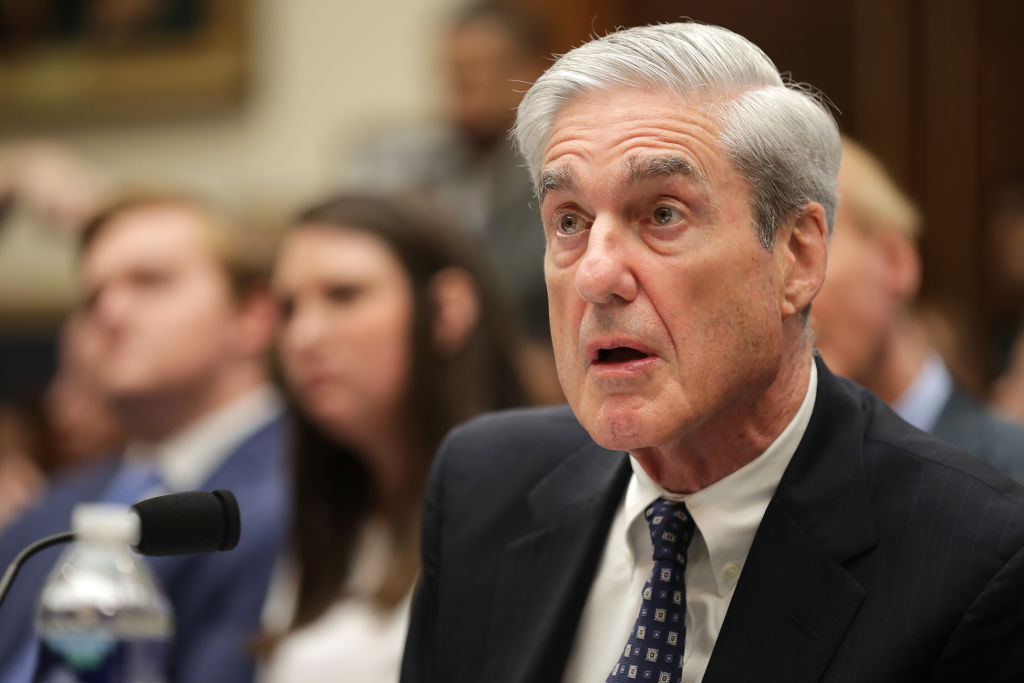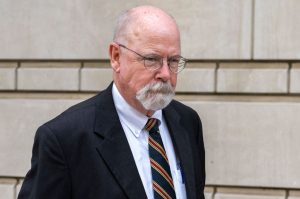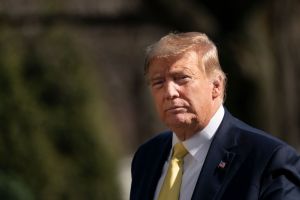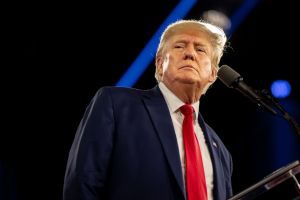This article is in
The Spectator’s inaugural US edition. Subscribe here to get yours.
More official reports, reprimands and (probably) indictments are to come in the Great Get Trump imbroglio of 2016 to 2019. But it is not too early to begin an autopsy of the greatest political scandal in American history. The patient is dead, dead, dead, and the last doctors in the room are the pathologists. The lawyers crowding the corridor outside the operating theater are interested not in resuscitating the corpse but in distributing and gorging upon its assets.
The world was surprised when, at the end of August, it was announced that inspector general Michael Horowitz would produce not one but two reports on alleged wrongdoing in the Department of Justice’s conduct of the investigation into Trump’s 2016 presidential campaign.
The first dealt exclusively with allegations that James Comey, the disgraced former director of the FBI, had mishandled classified information. A report concluded that Comey had ‘failed to live up to’ his responsibility. ‘By not safeguarding sensitive information obtained during the course of his FBI employment,’ the report concluded, ‘and by using it to create public pressure for official action, Comey set a dangerous example for the over 35,000 current FBI employees — and the many thousands more former FBI employees — who similarly have access to or knowledge of non- public information.’
Ordinary mortals, confronted with such a blistering review, would withdraw in shame. But James Comey is no ordinary mortal, as he keeps reminding us. Among other things, Comey’s response confirms Hazlitt’s observation that those who lack delicacy hold us in their power. The Justice report had barely hit the internet before Comey crowed on Twitter that he wasn’t going to jail and suggested his critics offer contrition: ‘I don’t need a public apology from those who defamed me, but a quick message with a “Sorry we lied about you” would be nice.’ I wonder how many missives he received?
DOJ IG "found no evidence that Comey or his attorneys released any of the classified information contained in any of the memos to members of the media." I don’t need a public apology from those who defamed me, but a quick message with a “sorry we lied about you” would be nice.
— James Comey (@Comey) August 29, 2019
As the autopsy of the anti-Trump carcass proceeds and the public — and the Department of Justice — digest the inspector general’s findings about partisan abuse of the Foreign Intelligence Surveillance Act for the purpose of destroying Trump, I predict Comey will forgo mentioning jail in his tweets and will also stop soliciting apologies. For if this entire drama has unfolded partly under the aegis of Hazlittian effrontery, it has also confirmed the wisdom of the adage that things are always worse than they seem.
Just how much worse is something we will only gradually discover. ‘Humankind,’ T.S. Eliot said, ‘cannot bear very much reality.’ When Robert Mueller was first appointed special counsel to investigate allegations of collusion between Trump’s presidential campaign and Russia, many in the punditocracy believed we were in for a reprise of Watergate. It wasn’t long, however, before people began referring to the investigation as a ‘hoax’, an act of deliberate trickery.
From there, it required only a small dollop of disillusionment for people to realize that what we were dealing with was not so much a hoax as an attempted coup. If that sounds hyperbolic, think about what actually happened over the past three years.
Scores, if not hundreds or even thousands, of columns have been written about every aspect of this complex story. We all know about the deployment of shadowy characters like Alexander Downer, the former Australian ambassador to the UK, Hillary Clinton supporter and engineer of a $25 million contribution from the Australian government to the Clinton Foundation. Downer had drinks with George Papadopoulos, a minor Trump campaign aide, and thereby helped get the ball rolling on the Russia investigation.
For a nanosecond, the New York Times said that was where it all started. But Downer was just the tip — or maybe just a tip — of the iceberg. One of the remarkable things about this story is how many people it involves and how long it has taken to get a full headcount of the anti-Trump team. Remember Joseph Mifsud? Stefan Halper? Peter Strzok and his alleged paramour, Lisa Page? Bruce Ohr, former associate deputy attorney general? It turned out that his wife, Nellie Ohr, worked for Fusion GPS, the company that hired Christopher Steele.
And what about Steele? We first met him as a former British spy, the ‘highly respected’ operative who had the goods on Trump. We soon learned that Steele had been paid by the Democratic National Committee and the Hillary campaign, and that his dossier was not just ‘unverified’ and ‘salacious’, as James Comey said, but was nothing but scurrilous opposition research assembled from ‘random’ gossip from highly dubious sources. Nevertheless, it was the dossier, and nothing but the dossier that provided unverified ‘evidence’ for supposedly ‘verified’ FISA warrants to spy on Carter Page, an American citizen, and hence to spy on Trump’s campaign and, later, his administration.
On and on this kaleidoscopic onion has unpeeled, one skin after the next, each revealing another layer and additional personalities. Finally, however, I believe we are nearing its hollow center. Attorney general William Barr — aided not only by Michael Horowitz but also by US attorney John Durham —is proceeding methodically, inexorably to expose the origins of the spurious, illegal Get Trump extravaganza.
What began in 2016, or late 2015, and continued until and beyond the day Robert Mueller deposited his nearly 500-page report clearing the president of ‘collusion’ was not a hoax at all. It was an attempted coup. We should face up to that unpleasant fact and call things by their real names.
The Obama administration’s actions threatened not just Trump and his presidency, but the very processes and protocols by which the peaceful transition of power has been effected in the United States. As this fact becomes more widely appreciated, expect James Comey’s tweets to take on a more elegiac, ‘What difference, at this point, does it make?’ tone. Don’t expect an apology. Do expect a shifty sort of reticence and backpedaling.
This article is in The Spectator’s inaugural US edition. Subscribe here to get yours.




















